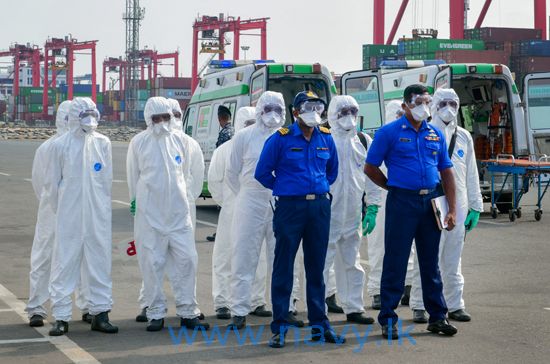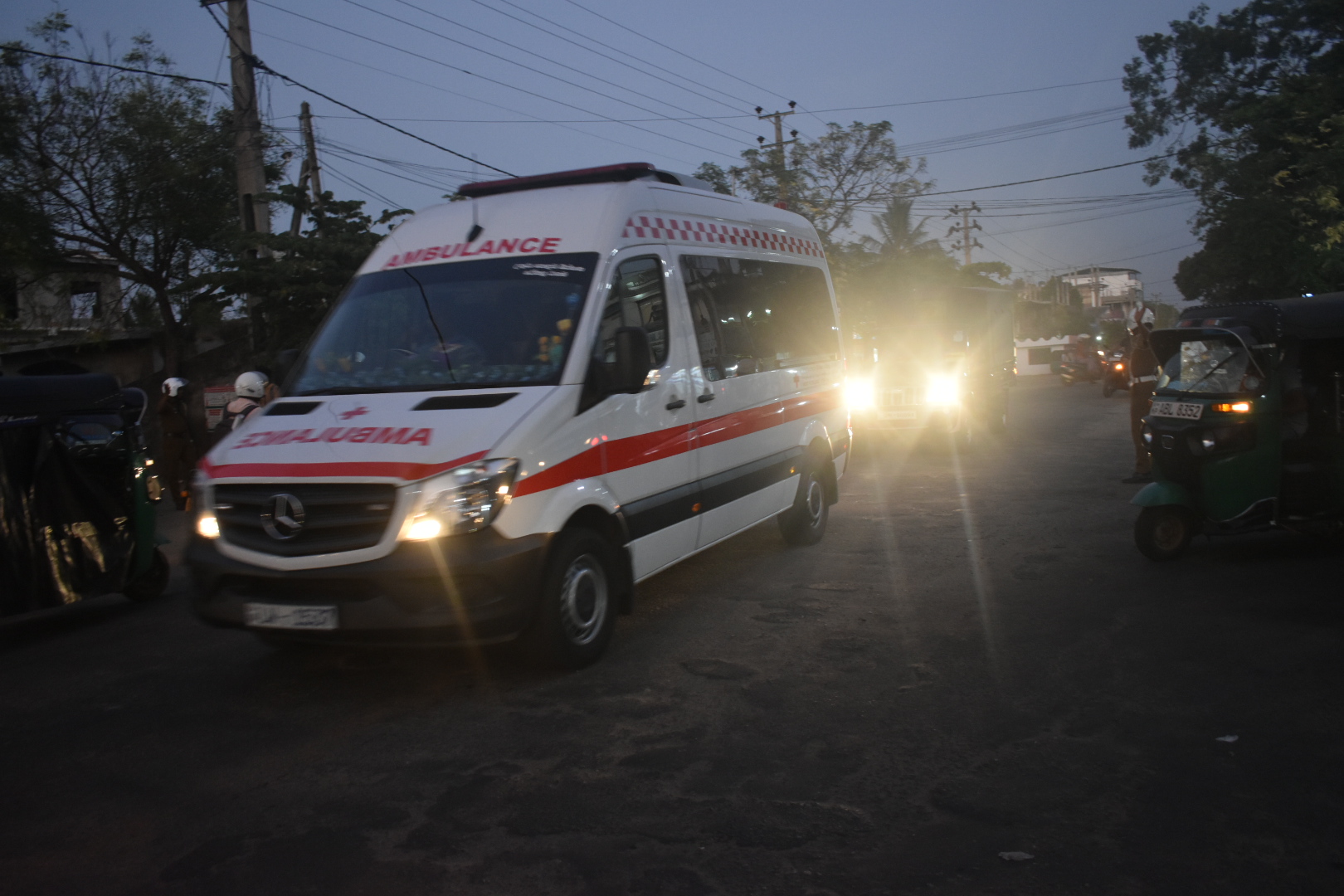
Sri Lankan navy troops from the Chemical, Biological, Radiological and Nuclear (CBRN) unit carry out drills on Friday.
As coronavirus cases escalate across the island, hospitals and clinics across the North-East are bracing themselves for any potential outbreak, with many concerned at Colombo’s militarised and ‘politicised’ strategy.
Speaking on condition of anonymity to the Tamil Guardian, one local clinician warned that systemic racism within Sri Lankan state institutions is risking lives. In addition, ‘coronavirus treatment centres’ are reportedly being seen up across the island without provisions such as additional ventilators, which will be essential in reducing mortality, leaving many across the island concerned.
“Sri Lanka is making a terrible mistake,” said an epidemiology expert based in the North-East. “It is not following epidemiological principles and this is due to corruption and racism in the government.”
For instance, the doctor cited the unwillingness of the Sri Lankan government to ban travel from China when the outbreak first began. “The first reported case was a Chinese national, but Sri Lanka did not act,” he said. Whilst Sri Lanka has now suspended flights from several European countries including the UK, throughout the course of the outbreak it has never banned travel to and from China.
“No Chinese patients are being sent to detention centres,” the doctor added. “There is an obvious bias and now there is a real fear of asymptomatic carriers.”
The Sri Lankan military’s construction of detention centres in the North-East, hundreds of miles away from Colombo’s international airport, has also come under fire. The military has begun quarantining those coming to the island from certain regions, admitting that some of those detained had conveyed their “objections”.
“They have allocated these quarantine centres in the North-East and other areas,” said the doctor. “When selecting institutions for isolation or treatment centres, the south was completely excluded. There is obvious discrimination.”
His comments were echoed by TNA member Selvam Adaikalanathan earlier this week, who questioned why Sri Lanka is “not taking steps to set up such camps in Hambantota or Galle?”.
The detention centre in Batticaloa, which has been set up on the grounds of a private university that the military has taken over, will have a profound impact for the next few years said the doctor.
“The university is in close proximity to the main road - less than 100 meters - and when the numbers in the quarantine centres increase, there is a risk the disease will spread,” he said. “If there is even one positive case there, they know that no-one will use that building for years.”
Tamil National Alliance parliamentarian M A Sumanthiran also released a statement this week, which said the detention centre “has created fear among the people living in that area” and called on Colombo to “pay heed to the concerns of the public”.
“While we insist that the state should do everything within its capacity to contain and control the spreading of this virus, the public of that area are questioning why is the state comfortable with using land in which Tamil people live within its proximity to handle such a dangerous disease,” Sumanthiran added. “Further, this decision has created fear among the people living in that area.”
“They are trying to keep any outbreak far away from their areas,” the doctor concluded. “By putting these detention centres in Tamil areas and other regions they are discriminating and intentionally creating panic."
“The top brass of the Sri Lankan government is showing this again. They just want to save themselves.”
We need your support
Sri Lanka is one of the most dangerous places in the world to be a journalist. Tamil journalists are particularly at threat, with at least 41 media workers known to have been killed by the Sri Lankan state or its paramilitaries during and after the armed conflict.
Despite the risks, our team on the ground remain committed to providing detailed and accurate reporting of developments in the Tamil homeland, across the island and around the world, as well as providing expert analysis and insight from the Tamil point of view
We need your support in keeping our journalism going. Support our work today.
For more ways to donate visit https://donate.tamilguardian.com.


